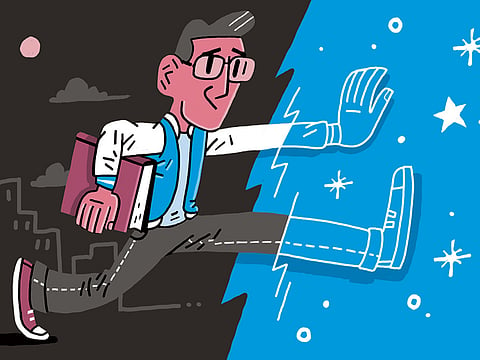Learning today for tomorrow’s world
The world has radically changed, so it is important to take to prepare our children and students to face the challenges of the new future

The world of education and learning and the world of work, jobs, and careers are changing faster than ever.
A few months ago, a group of US university vice-presidents held meetings to discuss the changing nature of higher education. They made this important observation: “We expect [that] most of our graduates will enter work [environments] where they will soon face the following new challenges: working with knowledge that doesn’t yet exist, using practices that don’t yet exist, in jobs that don’t yet exist.” They concluded that our teaching and learning strategies must adapt to the changes that are occurring in the world, mainly due to the digital, information, and communication revolutions.
In my previous column, I mentioned how textbooks are fast disappearing as a paper product and becoming e-books, i.e. digital products that offer new benefits (interactive material, accessibility from anywhere, etc.) — and some drawbacks, which I tried to identify and address.
There are many other changes that have occurred in the world of education and learning, and we must continuously adopt new techniques and strategies, and possibly entire new philosophies of teaching and learning.
First, indeed, many aspects of the education process are becoming digital. Instructors now routinely post lecture notes and assignments on the electronic board that connects them with students. Most “handouts” are no longer handed out. Even exams are sometimes given online. Paper is used as little as possible, not because we are so environmentally conscious, but because it is so much more efficient to just upload or download a document – at almost no cost and from virtually anywhere.
Secondly, and more importantly, instructors are now aware that much of what they teach is available online, in the form of video lectures by some of the best professors on the planet, PowerPoint files with excellent graphics and up-to-date data, animations and simulations, or other formats and styles. Teaching is no longer a matter of transmitting information; it now aims at training students to examine and assess information — what is valid info, what is to be doubted, what is to be critically analysed and properly digested.
Describing the change in the nature of higher education, the report from the meetings of the university vice-presidents that I mentioned above stressed the concepts of “experiential learning opportunities” and “reflective practice” in the educational arena. What does that mean, and how to achieve that? Three years ago, I published a paper with two of my students, one of them then a first-year student. The paper came out of the introductory astronomy course I regularly teach, in which I require students to write a short review paper on a specific topic, individually, at the end of the semester. The students learn to research a topic, critically assess the information they find, compare it and complement it with what they have learned in class, and synthesise the whole thing in a way that could be published, at least in a magazine, or possibly in a journal (if it contains some new knowledge). This is an “experiential learning opportunity”.
Not rare achievement
A few months ago, four other undergraduate students of mine presented a paper (with me and a few colleagues) at an international conference. After reviews, comments and corrections by an outside expert and by the editorial committee, the paper was published in the proceedings volume. Freshman or sophomore students publishing internationally may seem like a stunning achievement, but nowadays it is not rare; in fact, it is a widely recognised approach for student learning. Indeed, the students learned to collect data, filter it, analyse it, draw conclusions, critically assess their own efforts, and then make corrections from the reviews we received.
What about the “reflective practice” that the vice-presidents called for? One thing that is enlightening for students and very useful to learn is the process of peer reviewing. This is what happens when we submit a paper or a book for publication. We try to get the students used to this idea by having them critically analyse each other’s work, during class and seminar presentations, end-of-semester project reviews, and other occasions. In fact, we encourage the students to reflect on their work and even on what the professor says on a given topic.
We also train the students to be proactive and future-minded. We do this by asking them to come up with project ideas and to think them through (for potential implementation in the real world). Incidentally, I am not too fond of, or at least not too obsessed with ideas being “innovative”; I much prefer the concepts of “originality” and “creativity”, i.e. ideas that have not been copied or modified from existing ones, but rather ones that show that the student has come up with them by himself/herself.
The world has already changed, both in regard to learning and working out there, and it continues to change, in fact faster and faster. We must be aware or what is happening and take steps to make our children and students ready for the world they will work in and live in. The first and most important responsibility lies on the shoulders of educators. Let us be up to the challenge by being adaptive and responsive.
Nidhal Guessoum is a professor of physics and astronomy at the American University of Sharjah. You can follow him on Twitter at: www.twitter.com/@NidhalGuessoum.
Sign up for the Daily Briefing
Get the latest news and updates straight to your inbox


